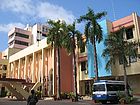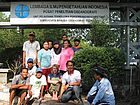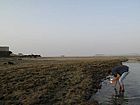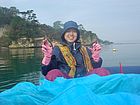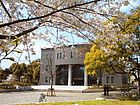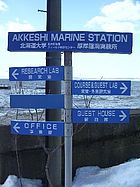GAME Partnerinstitute/Netzwerk
- 38 wissenschaftliche Partner in 28 Ländern -
-----------------------------------------------------------------------------------------------------------------------------------

England
Institute: University of Newcastle upon Tyne, Newcastle
Local tutor: Dr. Jeremy Thomason
Participation: GAME 2003, 2004, 2005, 2006,
Last update: March 2022
Newcastle upon Tyne is located near the north-east coast of England, which is characterised by strong tides and rough conditions. Thus, the marina in Hartlepool provides an apt and sheltered study site for the GAME experiments.
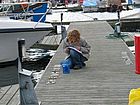
...................................................................................................................................
Finland
Institute: Åbo Akademi University, Turku
Local tutors: Associate Prof. Dr. Christian Pansch-Hattich
Participation: GAME 2006, 2009, 2011, 2012, 2013, 2020, 2021, 2022
Last update: March 2022
Turku (Åbo in Swedish), founded in the 13th century, is the oldest and fifth largest city in Finland. The GAME experiments take place at Husö Biological Station on the Åland Islands, which is one of the two field station of Åbo Akademi University.
The underwater environments are characterized by a very limited number of marine species due to low salinities, which are partly being replaced by freshwater species, making this an interesting study area. This area is ideally to studying the impacts from climate change in marginal communities, and represents the salinity borderline of several habitat-forming species in the Baltic Sea such as Zostera marina and Fucus vesiculosus.
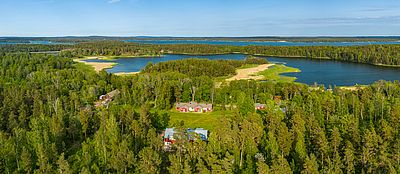
...................................................................................................................................

Germany
1. Institute: Alfred-Wegener-Institut für Meeres- und Polarforschung, Helgoland/Bremerhaven
Former local tutor: Dr. Markus Molis
Participation: GAME 2005, 2008
Biologische Anstalt Helgoland / Alfred Wegener Institute for Polar and Marine Research. Although GAME does not send students to the island of Heligoland directly, the Biologische Anstalt, which is represented by Dr Markus Molis, regularly participates in GAME projects. AWI students, who are on the island anyway, perform those modular experiments which belong to the respective research topics; this way they complete our network with an important site. Heligoland provides the only off shore research opportunity in the German Bight which features a considerable tidal range and at the same time is reachable from land.
2. Institute: GEOMAR Helmholtz Centre for Ocean Research Kiel
Local tutor: Dr. Mark Lenz
Participation: GAME 2020
GEOMAR Helmholtz Centre for Ocean Research Kiel is one of the world's leading institutions in marine research. GEOMAR researches the global ocean from the seafloor to the atmosphere, covering a unique spectrum of physical, chemical, biological and geological processes in the ocean.
Last update: March 2022

Hong Kong
Institute: SWIMS (Swire Institute of Marine Science, einem Institut der Universität von Hongkong), Hong Kong
Local tutor: Dr. Clement Dumont
Participation: GAME 2010, 2011
Last update: March 2022
The SWIMS is located at the very remote south-easterly tip of the island of Hongkong in a marine protected area. The ocean around Hong Kong is subtropic but experiences some distinctive features. Winters come along with low temperatures and high salinities, summers with high temperatures and low salinities. West of Hong Kong the water is dominated by inflow from the Paerl River that causes strong turbation, changes in salinity and high pollutant loads - especially during rain season.

India
Institute: National Institute of Oceanography, Goa
Local tutor: Dr. Chandrashekar A. Anil
Participation: GAME 2008, 2009
Last update: March 2022
The National Institute of Oceanography in Dona Paula, Goa, is one of the biggest research facilities in India, with currently about 200 scientist working here. The institute has the most comprehensive library in the field of marine sciences on the subcontinent. Within the GAME network Goa represents one of the tropical sites. The climate in this part of India is strongly characterized by the monsoon, which also has manifold impacts on the organisms living in the shallow coastal waters. GAME participants in Goa are tutored by Dr. Chandrashekar A. Anil.

Indonesia
Institute: Bogor Agricultural University, Bogor
Local tutor: Dr. Karen von Juterzenka, Dr. Neviaty Putri Zamani
Participation: GAME 2008, 2009, 2010, 2011, 2012, 2013, 2014, 2015, 2016, 2017
Last update: March 2022
The city of Bogor is located on the west side of the Indonesian island of Java only about 60 kilometres away from the capital Jakarta. Currently it is inhabited by 750 000 people, but over time it and Jakarta, together with two other cities, is gradually coalescing into a single big urban conglomeration. Although Bogor University lies away from the shore, it is possible to do marine biological research in its laboratory facilities; additionally, there’s a field station on an island north of Java.

Iran
Institute: Shahid Beheshti University, Teheran
Local tutor: Dr. Behroz Abtahi
Participation: GAME 2009
Last update: March 2022
Shahid Beheshti University Teheran / Queshm Marine Station. Until now, alongside the Persian Gulf marine areas relatively little ecological research has been done. Especially, ecological knowledge concerning the coastal regions is sparse. Mediated by the Shahid Beheshti University in Teheran, GAME participants are given the opportunity to do their biological research work at the Queshm Marine Station on Queshm Island in the Persian Gulf. This surely is one of the more unusual and at the same time most interesting sites within the GAME network. Students are tutored by Dr. Behroz Abtahi.

Israel
Institute: Israel Oceanographic and Limnological Research (IOLR), Haifa
Local tutor: Dr. Gil Rilov
Participation: GAME 2015, 2017
Last update: March 2022
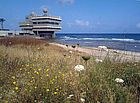
.................................................................................................................

Italy
Institute: Universita di Pisa, Pisa
Local tutor: Professor Dr. Lisandro Benedetti-Cecchi
Participation: GAME 2004
Last update: March 2022
Since Pisa itself isn’t a coastal city, the experiments were carried out in Livorno on the Ligurian Sea, where port facilities provided shelter against an often rough sea. Both Pisa and Livorno are cities in the Tuscany region of Italy.
...................................................................................................................................

Japan
- Institute: Tohoku University, Sendai
Local tutor: Professor Dr. Jotaro Urabe
Participation: GAME 2005
The city of Sendai is the located in the north eastern part (the Tohoku region) of Japan’s largest island Honshu, about 350 km away from Tokyo. The experiments were carried out on an island near the coast.
- Institute: Universität von Chiba, Chiba
Local tutor: Professor Dr. Masahiro Nakaoka
Participation: GAME 2007
Chiba is situated south east of Tokyo on the Pacific Ocean. Experimental activities take place at two separate locations in the inner part of the Tokyo Bay.
- Institute: University of Hokkaido, Akkeshi
Local tutor: Professor Dr. Masahiro Nakaoka
Participation: projects 2009, 2010, 2011, 2013, 2014, 2015, 2016, 2017, 2018, 2019, 2020, 2021, 2022
University of Hokkaido - Akkeshi Marine Station. On Japan’s second largest island, GAME teams work at the marine biological station in Akkeshi, a site belonging to the University of Hokkaido in Sapporo. Akkeshi is situated on Hokkaido’s east coast, on a coastal strip characterized by impressive high cliffs and rocky shores. Here, in a little bay and about 5 km away from the city (which is renowned for its oyster farming) the station can be found. Akkeshi is an optimally qualified site for marine research due to its straightforward access to the sea, an uninterrupted supply of sea water in the laboratories, and the overall superb infrastructure. GAME teams are tutored by Dr Masahiro Nakaoka.
Last update: March 2022
...................................................................................................................................





